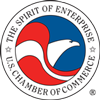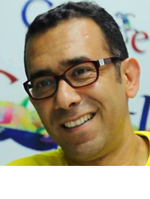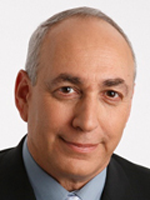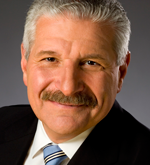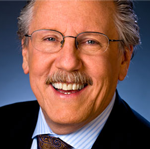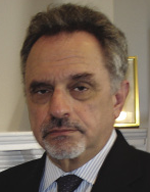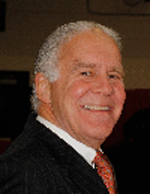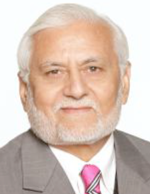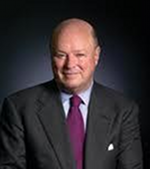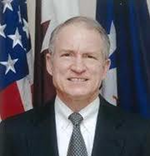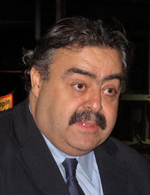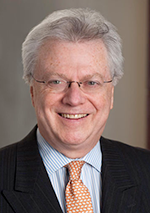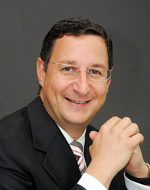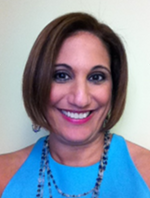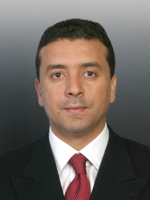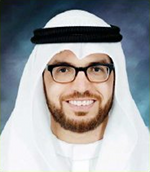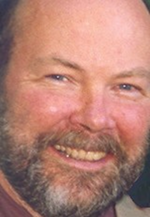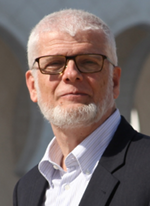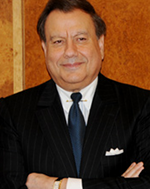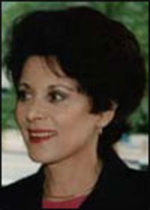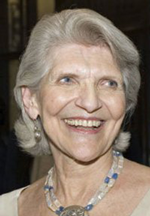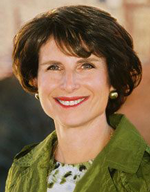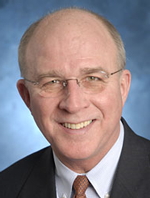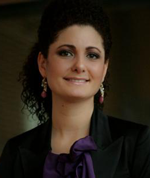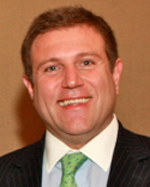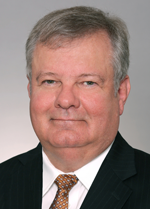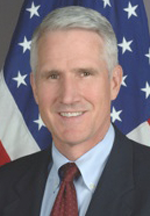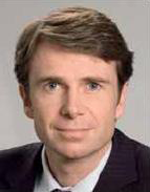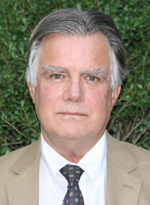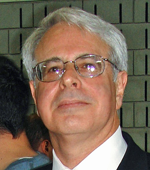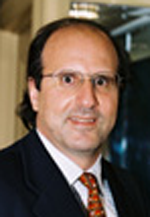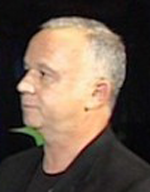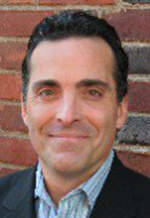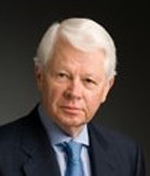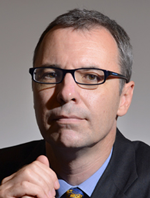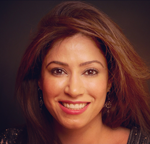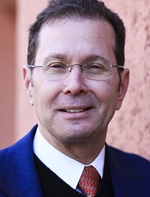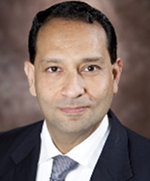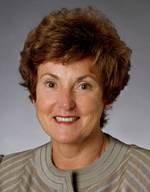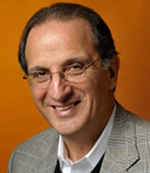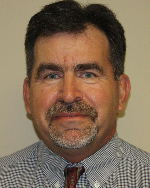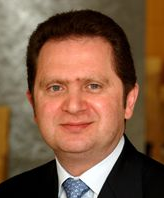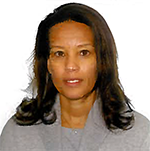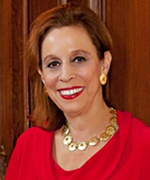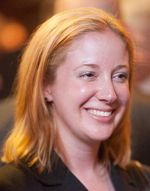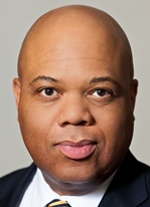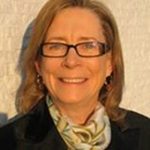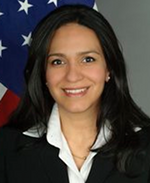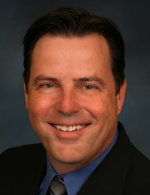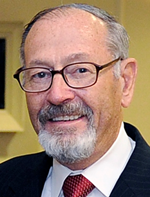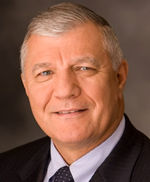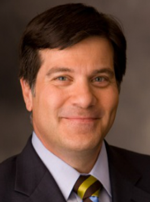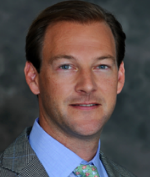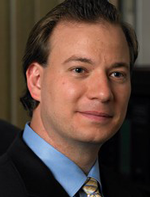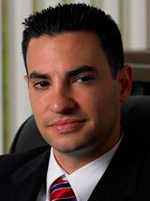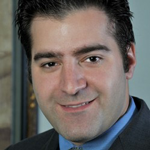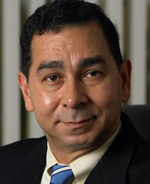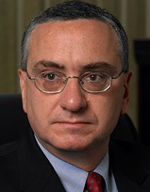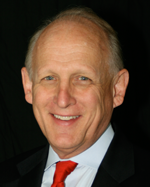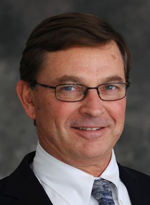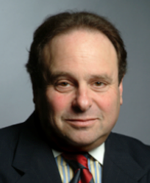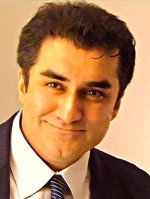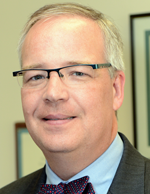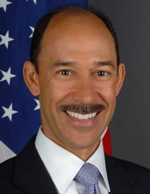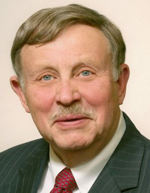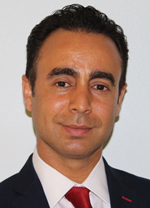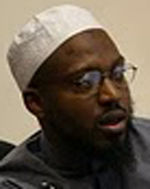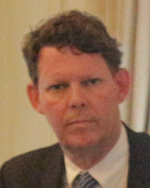7:00 am - 8:00 am
Room: Main Lounge First Floor
|
|
C3 2013 Registration & Continental Breakfast Sponsored by Carter, DeLuca, Farrell & Schmidt, LLP
|
The Union League Club
38 East 37th Street / S.E. Corner of Park & 37th/ Entrance on 37th Street
New York, NY
|
|
8:00 am - 9:00 am
Room: Lincoln Hall
Second Floor
|
|
Opening Plenary of C3 Summit 2013
|
Ransel N. Potter,
Founder & Managing Partner,
C3 Summit, LLC
|
Patrick N. Theros,
Former U.S. Ambassador,
Qatar,
President and Executive Director,
US-Qatar Business Council
|
Muhammad Munir Chaudry,Ph.D.,
President,
The Islamic Food and Nutrition Council of America (IFANCA)
|
Edward Burton,
Chief Executive Officer and President,
U.S.-Saudi Arabian Business Council
|
Chemi Peres,
Managing General Partner,
Co-Founder,
Pitango Venture Capital
|
Ron Bruder,
Founder & Chairman of the Board,
Education for Employment (EFE)
|
Dr. John Duke Anthony, PhD,
President and CEO,
National Council on U.S.-Arab Relations
See Speech
|
|
9:00 am - 10:00 am
Room: Lincoln Hall Second Floor
|
|
Keynote Address: The Impact of the Internet on MENA
|
|
Wael Fakharany,
Regional Director,
Egypt & North Africa,
Google
As Regional Director for Google in the Egypt & North Africa region, Mr. Fakharany will address how the Internet has had nothing short of a Tsunami effect on the most basic way of life in the Arab world. With a population of 400M people, of which 60% are under the age of 25, there are more than 120M Internet users in the MENA region, which represents a growth well over 1000% during the last decade. Because of this technological phenomenon, many facets of life have changed. By harnessing the powers of the Web to bring about gargantuan economic, social and political changes for the nearly 400 million inhabitants in the region, the Internet has given the young people a podium from which their voices can now be heard far and wide.
The swift rise and power of the Internet in the region has represented itself as both a momentous opportunity and a simultaneous challenge for many governments in the Middle East region. On one hand, it has provided an excellent medium by which to further increase services, utilize the power of the Cloud and harness the Internet economy to increase exports. On the other hand, it has also proved to be both a cultural and political challenge as it allowed individuals to mobilize, express themselves freely, reach a mass audience and even topple regimes, as evident by the still-ongoing Arab Spring.
This is a time like no other. We are indeed lucky to be part of this pivotal moment in history to witness a change so utterly magnificent. In one of the fastest growing regions on this planet, with Arabic the fastest growing language on the Internet, this powerful technology presents itself as a two-edged sword. So how can the Arab World truly embrace its powers? More importantly, how can these very powers be harnessed to benefit Arab youth, provide a higher caliber education, increase the quality of basic day-to-day services and, eventually, the overall quality of Arab life? Mr. Fakharany will share his unique insights and observations regarding these critical questions during his keynote address.
|
|
|
10:00 am - 10:10 am
|
Session Break
|
10:10 am - 11:10 am
Track #1
Room: Lincoln Hall
Second Floor
|
|
Why Cross-Border/International Commerce Helps Develop Bilateral Interests
|
Khush Choksy,
(Moderator),
Vice President for Turkey, Middle East and North Africa Affairs,
U.S. Chamber of Commerce
|
Michael H. Corbin,
U.S. Ambassador,
United Arab Emirates
|
Ken Close,
CEO & Founding Partner,
The Quincy Group
|
Joseph L. Brand,
Partner,
Patton Boggs LLP
|
Judith Kipper,
Director,
Middle East Programs,
Institute Of World Affairs
|
Robert E. Michael,
Chair, Islamic Law Committee,
American Branch International Law Association
|
Scott Anderson,
Director Of Marketing,
Global Cleantech Center,
Ernst & Young
|
|
In the mainstream news today, we all too often hear about strained relations between the U.S. and a certain Middle Eastern country over a particular political issue. Often not considered news worthy, however, are the positive commercial relationships that have been developed over the last few decades between the U.S. and many countries within the region. Frequently, these economic success stories temper actions or help rebuild damage caused by political disagreements. The U.S.- Saudi Arabian relationship has been one of the best examples of this dynamic over the years—the relationship severely damaged due to the 9/11 attacks, but rebounding in a relatively short amount of time in part due to the strong and vital economic ties between the two nations.
|
|
10:10 am - 11:10 am
Track #2
Room: Main Lounge
First Floor
|
|
Why U.S. Trade Exports and Infrastructure Can Help MENA Realize the Full Benefits of Globalization
|
Todd P. Schwartz,
(Moderator),
Deputy Special Representative,
Commercial & Business Affairs,
U.S. Department of State
|
Frederick W. Werner,
President,
Europe-Middle East-Africa,
AECOM
|
Tanya Cole,
U.S. Commercial Service Officer,
U.S. Department Of Commerce
|
Peter Gish,
Partner,
UPC Renewables
|
Jane Garvey,
North American Chairman,
Meridiam Infrastructure
|
Laura Lombard,
President & Executive Director,
Middle East North Africa Consultants Association (MENACA)
|
Thad Geiger,
Agribusiness Development,
Kansas Department of Agriculture
|
|
The United States has an enormous capacity to help this region succeed both politically and economically through its participation in business with the region. American companies have the reputation for bringing to market world-class technology, transparent business practices, and exceptional treatment of their employees. Investment in business ties and assisting this region, with its great infrastructure needs, to benefit both regions will be the focus of this panel.
|
|
11:10 am - 11:20 am
|
Session Break
|
11:20 am - 12:20 pm
Room: Lincoln Hall
Second Floor
|
|
Security in the Age of Global Commerce
|
Paul J. De Lia,
(Moderator),
Corporate Vice President
- Science & Technology,
L-3 Communications Corporation
|
Patrick M. Hughes,
Lieutenant General, U.S. Army (Ret),
President,
PMH Enterprises LLC
|
General Richard A. Cody, USA (Ret),
Corporate Senior Vice President - Washington,
L-3 Communications Corporation
|
David Van Buren,
Senior Vice President,
Corporate Business Strategy,
L-3 Communications Corporation
|
Nathaniel T. G. Fogg,
Partner & Managing Director,
The Chertoff Group
|
Dr. Prescott Winter,
Managing Director,
The Chertoff Group
|
In an age of global commerce, security is an ever present concern for governments and corporations alike. Emerging markets' share of global exports doubled from 20 percent in 1970 to 43 percent today and emerging markets hold 70 percent of foreign exchange reserves. Africa has recently emerged as a major petroleum exporter and is developing strategic economic relationships with China and India, providing commodities for their rapid industrialization.
Twenty-four hours a day, seven days a week, the global movement system shuttles goods and services, capital and labor and bits and bytes around the globe to provide the substance of daily life: jobs, wages, food, electricity, education, news and information, leisure and entertainment. As a result, nations and economies are becoming increasingly integrated and interdependent. The United States relies on the rest of the world to supply two-thirds of its oil and to finance 44 percent of its public debt. China relies on exports for 36 percent of its gross domestic product (GDP). Simply stated, society expects global movement systems to be like water, electricity and other utilities: People simply expect them to work and expect them to be available on demand. When they fail, consequences are rapid, widespread and significant. This panel will explore the impact of successful and unsuccessful security consequences.
|
|
12:20 pm - 1:30 pm
Room: Main Dining
Third Floor
Buffet Lunch Sponsored by Carter, DeLuca, Farrell & Schmidt, LLP
|
|
Luncheon Address: Afghanistan and the Arab World
|
|
Fareed Osman,
Chairman,
Antigravity Group
From the Silk Road to the Present: A Discussion on Emerging, Long-term Trends to Help Foster Collaboration and Trade for Regional Stability in the Middle East.
As the NATO campaign in Afghanistan draws to a close, and the Doha Settlement talks collapse yet again, the question on everyone's mind is: Can Afghanistan emerge as a stable state and how will its stability, or instability, affect the region at large, particularly the Middle East given its historical religious and cultural linkages?
Afghanistan is the buffer state between the Middle East and Asia. The Middle East extends and stops at the boundaries of Iran which lies to the West of Afghanistan, which is the gateway to Asia. The emergence of Afghanistan, with its $3 Trillion in minerals deposits, as a logistical transport hub between Asia and the Middle East, is key to realizing vital and mutually shared interests by the Arab world and Afghanistan. Mr. Osman will share his insights on how increasing intra-Asian trade and economic integration, made possible by political interconnectedness, will pave the way for Afghanistan to play a stabilizing role to the social upheaval in the Middle East.
|
|
1:30 pm - 2:30 pm
Room: Lincoln Room
Second Floor
|
|
Why the Arab Awakening had an Impact on American Business, Both Regionally and Internationally
|
Frank Wisner,
(Moderator),
Former U.S. Ambassador, Egypt, Zambia, India, Philippines,
Partner, Patton Boggs
|
Mark D. Cowan,
Chief Executive Officer,
Cowan Strategies |
Karim Babay,
Founder, Managing Partner And Chief Investment Officer,
Intrinsic Value Investment Partners
|
Chase Untermeyer,
Former U.S. Ambassador,
Qatar
|
Judith Kipper,
Director, Middle East Programs,
Institute Of World Affairs
|
Hussain A. Qaragholi,
President,
U.S. Business Council, Iraq
|
The Arab Awakening, in the MENA region, has had both positive and negative effects on American business throughout the region. With prudent assessments and cautious care, the sum total of these effects may eventually lead to potential opportunities for business in countries such as Libya and Egypt. However, these opportunities have yet to materialize in the aftermath of recent changes.
Nevertheless, restoring confidence is greatly dependant on the outcomes on the political front. Will the uprisings lead to democracies, freedom and accountability, or will they bring more chaos to the region? Will they keep changing regimes or merely replace rulers? Will the uprisings be limited to just a handful of countries or will they spread over others, or the majority of countries in the region? Would these tectonic shifts possibly entail any change in the geography of the region? Even though oil-producing countries have benefited in the near-term and others have deteriorated fairly drastically, the future impact on the Arab Awakening on American businesses, both regionally and internationally, remains uncertain. In this session, we will discuss why the Arab Awakening had an impact on American business, both regionally and internationally.
|
|
2:30 pm - 2:40 pm
|
Session Break
|
2:40 pm - 3:40 pm
Track #1
Room: Lincoln Room
Second Floor
|
|
Why Sukuk? Bridging the Gap: A Case Study of a U.S. Sukuk Transaction
|
Chris Smith,
(Moderator),
Director,
Taylor-DeJongh
|
Shaykh Yusuf Talal DeLorenzo,
Shari'ah Advisor,
Dubai, UAE |
Paul Homsy,
Principal,
Noonmark Capital Partners, LLC
|
Robert E. Michael,
Chair, Islamic Law Committee,
American Branch International Law Association
|
John H. Marino, Sr.,
Vice Chairman,
Continental Rail Corporation
|
Taha Abdul-Basser,
Affiliate,
Harvard Law School
|
|
Little understood in the U.S., a Sukuk is an Islamic financial certificate similar to a bond in Western finance, but complies with Islamic law through the elimination of interest. Instead, the issuer of a Sukuk sells an investor group the certificate, who then rents it back to the issuer for a predetermined rental fee. As the financial sector in the Middle East—particularly in the Gulf--continues to develop and grow, it will be increasingly important that American investors find ways to bridge the gap between our interest-based financial systems and those based on Islamic finance such as Sukuk to fully take advantage of the financial opportunities this region represents.
|
|
2:40 pm - 3:40 pm
Track #2
Room: Main Lounge
First Floor
|
|
Why Women's Rights Have Advanced, Or Not, in the Islamic World Following the Arab Spring
|
Judith Barnett,
(Moderator)
Founder & President, Barnett Group, LLC
|
Randa Fahmy Hudome,
President,
Fahmy Hudome International
|
Harriet Fulbright,
Former Executive Director,
President's Committee on Arts and Humanities
|
Hazami Barmada,
President & CEO,
Al-mubadarah
|
Aiyah Saihati,
Founder & President,
Saihati International Group
|
Beatrice von Silva-Tarouca Larsen,
Board Member,
Savannah College of Art and Design (SCAD)
|
|
The situation of women in the Middle East and North Africa has taken new turns since the 'Arab Spring' erupted in 2011. The rise of Islamist forces in countries, such as Egypt, Libya, Syria and Tunisia has worried women's rights advocates about the prospects for gender equality in the Arab world. At the same time, however, prominent voices within various civil societies have actively sought to counter forces opposed to gender equality across the region. As new governments form, questions surrounding female participation in politics and women's rights will be the source of much contention and controversy. This panel examines the role that greater trade can play in facilitating the advancement of women's rights.
|
|
3:40 pm - 4:00 pm
|
Session Break
|
4:00 pm - 5:00 pm
Track #1
Room: Lincoln Room
Second Floor
|
|
Shifting the Needle Together: Why American and Arab Resources and Knowledge are Creating New Paradigms in Education, Entrepreneurship and Healthcare
|
Ron Bruder,
(Moderator),
Founder & Chairman of the Board,
Education for Employment (EFE)
|
Ahmed El Alfi,
Founder & Chairman,
Sawari Ventures
(Cairo, Egypt)
|
Karen Crennan,
Managing Director,
Accenture
|
Omar Elsahy,
General Manager,
Souq.com
Egypt
|
Nazanin Ash,
Former Deputy Assistant Secretary,
U.S. Department of State,
Middle East Partnership Initiative
|
Michael Jacobson,
Director, Corporate Responsibility Office,
Intel Corporation
|
The stepping stones that take a person from youth into adulthood are similar almost anywhere in the world, and it's never easy: establish a career, buy a home, get married. But in the Middle East, the struggle to launch what's known as one's "practical life" is getting even harder, and more and more young people are not making it past the first step -- getting a job. With no job, there is no money for a home. Without a home, there's probably no chance of getting married; tradition holds that a young man must establish a household for his bride. A generational crisis with unpredictable consequences is brewing.
The reasons for the youth unemployment crisis are many. Since 1980, the world population of 15-to-24-year-olds has doubled. In Egypt, 70 percent of the population is under 30. Youth unemployment across the region hovers at around 25 percent -- the highest in the world creating a "waiting generation" across the Middle East as lives are stalled before they can begin their trajectory.
A recent survey conducted by the World Bank found that 25 percent of firms in the region report the lack of skills among workers as a major constraint on youth employment. This is where an organization like Education for Employment (efe) has accomplished so much by providing thousands of youths in the Middle East with both educational skills and applicable employment.
|
|
4:00 pm - 5:00 pm
Track #2
Room: Main Lounge
First Floor
|
|
Why Developing, Protecting and Defending Intellectual Property Can Help Increase Global Valuation
|
George Likourezos,
(Moderator),
Partner,
Carter, DeLuca, Farrell & Schmidt, LLP
|
Dana A. Brussel,
Partner,
Carter, DeLuca, Farrell & Schmidt, LLP
|
Michael R. Brew,
Partner,
Carter, DeLuca, Farrell & Schmidt, LLP
|
Jason B. Scher,
Associate,
Carter, DeLuca, Farrell & Schmidt, LLP
|
Jason J. Poulos,
Associate,
Carter, DeLuca, Farrell & Schmidt, LLP
|
Hisham Elkoustaf,
Senior Advisor,
Bilateral US-Arab Chamber of Commerce
|
|
The development, protection, and defense of Intellectual Property rights is an extremely important topic for doing business across the world. A lack of laws or respect for Intellectual Property in various countries has deterred business activities from reaching their full potential. In addition, a lack of protections and financial rewards may be a factor deterring local entrepreneurs and inventors from initiating promising business models and inventions that could be brought to market worldwide.
|
|
5:00 pm - 5:20 pm
Room: Lincoln Room
Second Floor
|
|
Closing Plenary of C3 Summit 2013
|
Ransel N. Potter,
Founder & Managing Partner,
C3 Summit, LLC
|
Solange Warner,
Founder,
World Chamber of Commerce
|
Andrea Fiano,
Editor,
Global Finance Magazine
|
|
5:30 pm - 7:00 pm
Room: Main Lounge
First Floor
|
|
Cocktail & Networking Reception Sponsored by AECOM
|
Opening Remarks by AECOM Chairman & CEO John M. Dionisio
Music by Matthew Maimone, Pianist
|
|
